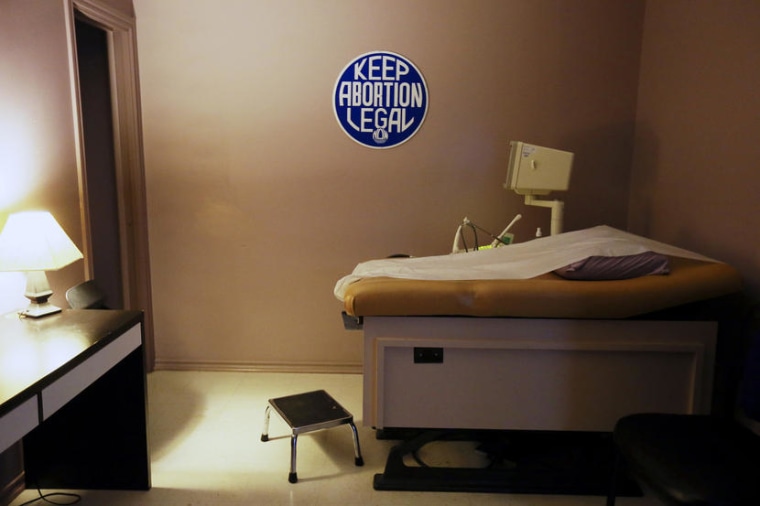Many on the right believe, for good reason, that Donald Trump and his Republican allies shifted the balance of power on the U.S. Supreme Court. It's only a matter of time, the argument goes, before the Roe v. Wade precedent is struck down at the hands of the six-member conservative majority.
And with this in mind, states with GOP-led governments have approved sweeping restrictions on reproductive rights, confident that such measures, which stood no realistic chance of withstanding judicial scrutiny before, might now survive court challenges.
Some of these efforts got underway a couple of years ago in high-profile fights in Alabama and Georgia, but as The State in Columbia, S.C., reported, South Carolina's ruby-red government has now taken similar steps in a regressive direction.
Just five weeks into the legislative session, South Carolina lawmakers passed a restrictive "fetal heartbeat" abortion ban bill, and S.C. Gov. Henry McMaster signed it into law Thursday. The controversial law, which critics say doesn't give women enough time to get an abortion after learning they're pregnant, was facing a court challenge before the governor had a chance to sign it.
The reference to giving women enough time "after learning they're pregnant" stands out for a reason: under South Carolina's new law, which will be tested vigorously in the courts, women will have to act within about six weeks after conception. And that's not the only restriction:
S. 1 requires doctors to perform an ultrasound to detect a heartbeat before performing any abortion. If a heartbeat is detected, the doctor would be prohibited from performing an abortion unless the pregnancy threatens the woman's life or could cause severe harm to her health, if the fetus has a detectable anomaly that is not compatible with life or in cases where the woman reports being the victim of rape or incest. If a woman reports to a doctor that she was the victim of rape or incest, the doctor would then be required to report the crime to the local sheriff with or without the woman's consent.
Not surprisingly, reproductive rights advocates believe the law-enforcement mandates will likely discourage women from coming forward.
Meanwhile, in Tennessee, which last year approved sweeping abortion restrictions, USA Today reported yesterday on a new Republican proposal that would "give a man who gets a woman pregnant the veto power to an abortion by petitioning a court for an injunction against the procedure."
The state legislation makes no exception for pregnancies resulting from rape or incest.
In the not-too-distant past, measures such as these new South Carolina and Tennessee policies were considered part of the fringe. But as Republicans move further to the right, and have few other governing priorities, they're now quite serious.
And with a politicized U.S. Supreme Court offering new opportunities for such radical proposals, far-right state legislators are only too pleased to take their chances.

